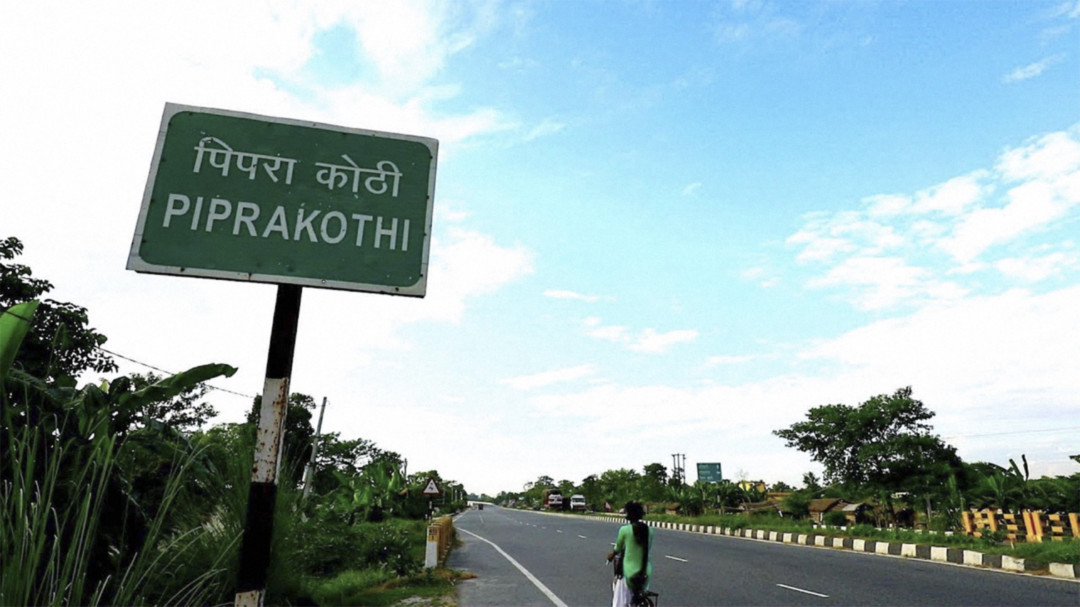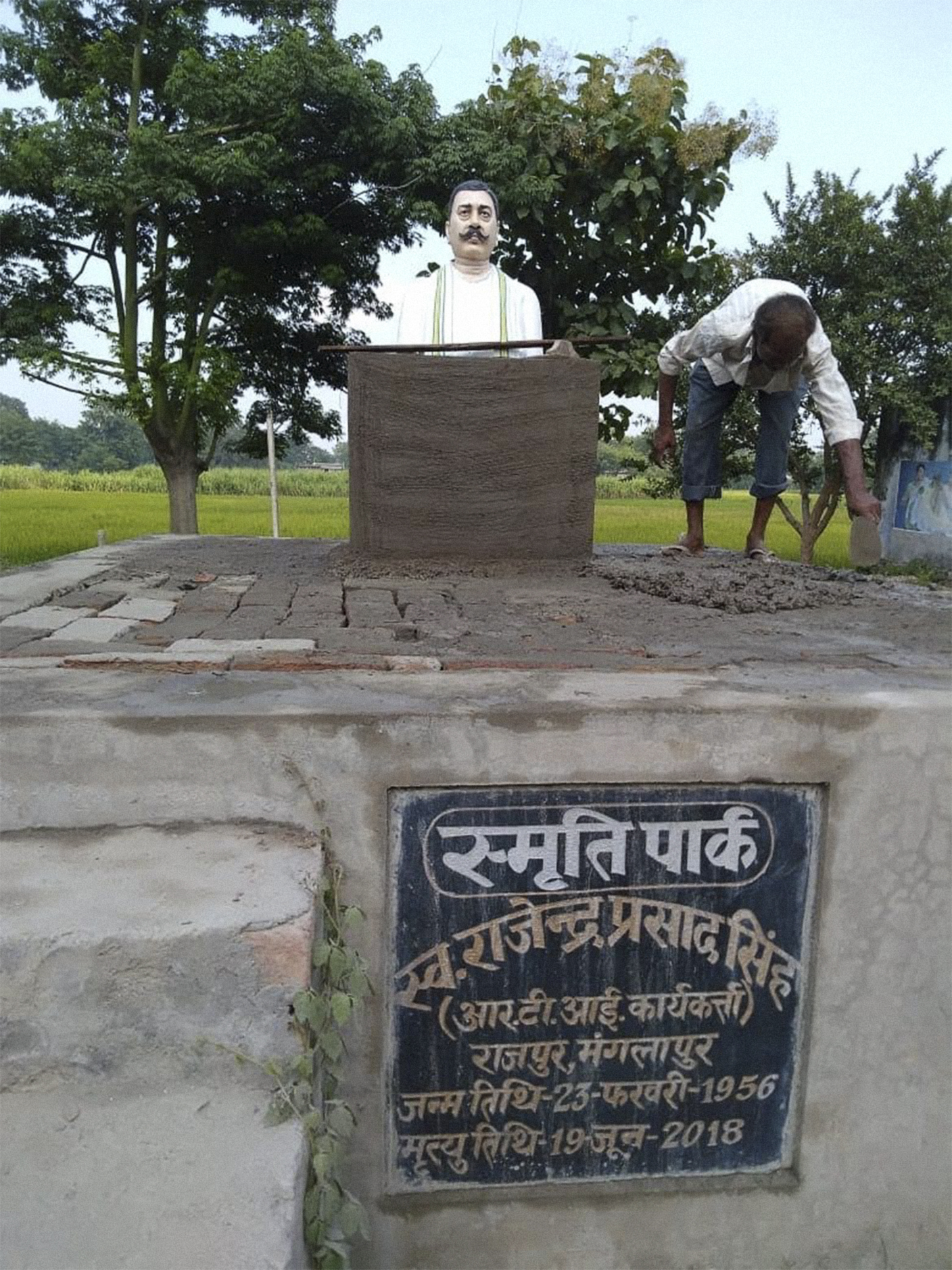19 June 2018
India
Rajendra Singh
Profession
Community
Motive
Political dissent
Whistleblowing


Adolfo Olivas


Ahmed Divela


Amit Jethwa


Artan Cuku


Babita Deokaran


Bayo Ohu


Berta Cáceres


Bhupendra Veera


Bill Kayong


Boris Nemtsov


Boško Buha


Chai Boonthonglek


Charl Kinnear


Chut Wutty


Chynybek Aliev


Cihan Hayirsevener


Daphne Caruana Galizia


Darío Fernández


Derk Wiersum


Deyda Hydara


Édgar Quintero


Edmore Ndou


Edwin Dagua


Federico Del Prete


Fernando Villavicencio


Gezahegn Gebremeskel


Gilles Cistac


Habibur Mondal


Igor Alexandrov


Jacob Juma


Ján Kuciak


Javier Valdez


Joannah Stutchbury


José Ángel Flores


Jules Koum Koum


Kem Ley


Luis Marroquín


Mahamudo Amurane


Marcelo Rivera


María Elena Ferral Hernández


Marielle Franco


Milan Pantić


Milan Vukelić


Muhammad Khan


Nelson García


Nihal Perera


Oliver Ivanović


Orel Sambrano


Perween Rahman


Peter R. de Vries


Rajendra Singh


Salim Kancil


Sandeep Sharma


Sikhosiphi Radebe


Slaviša Krunić


Soe Moe Tun


Victor Mabunda


Virgil Săhleanu


Wayne Lotter


Yuniol Ramírez


Zezico Guajajara
19 June 2018
India
Profession
Community
Motive
Political dissent
Whistleblowing
Rajendra Prasad Singh, a right-to-information (RTI) activist from the East Champaran district in the Indian state of Bihar, had exposed several cases of fraud and corruption in government welfare schemes at the village council level. On 19 June 2018, Singh was shot dead by sharpshooters close to the Piprakothi police station in Motihari. He was cycling home following a court hearing. Locals found him lying in a pool of blood on the road and rushed him to hospital, where he was declared dead.
This was not the first attack on the 60-year-old activist, but the one that would silence him forever.
A couple of days earlier, Singh’s daughter Mamata Ranjan had received an unusual call from him. Mamata and her husband, Rajesh, had been quarrelling, and Singh had come to know about the disagreement. He didn’t mince his words. ‘What’s wrong with you? Why are you fighting with your husband? There’s no guarantee as to how long I will live. Who will look after you when I am dead? I might not be around for long to take care of you,’ Singh told his daughter.
Ranjan listened silently. She said her goodbyes and ended the call. Two days later, as she was cooking lunch, the phone rang. A relative took the call. ‘I had a sudden pang in my heart. I don’t know why, so I tried to listen in,’ Ranjan explained. ‘I heard the words “shot dead”, and I knew they were talking about my father.’
Singh’s RTI work began in 2011. In 2013, he had exposed a village head in the area for illegally appointing his brother and his brother’s wife as teachers in a government school. As part of the process, they had falsified their degrees. Singh’s investigation led to the teachers’ resignation and a case was brought against the village head. It was the hearing of this case – and another that involved the husband of a different village head, who had allegedly siphoned off money meant for a welfare scheme – that Singh had attended the day he was killed.
‘He had a fire in him. He couldn’t stand corruption. And he wouldn’t stop after exposing it. There was a madness in him for justice,’ said his son-in-law, Rajesh Ranjan.
This quest for justice meant that Singh was fast gaining enemies. The fraud case involved Nagmani Singh, the husband of Sashikala, the village head of Bariaria-Rajpur panchayat, or village council. Nagmani had allegedly used his wife’s influential position to misappropriate money that was intended to fund projects under India’s $31 billion Clean India Mission. Fearing that his wife would be sentenced to prison for fraud, Nagmani began to plan to get rid of Singh. He rallied the support of several other community members whom Singh had exposed for property crime and corruption in the distribution of subsidized rations.
‘All the people he had exposed formed a syndicate to kill him, because that was the only way to stop him,’ Rajesh Ranjan said.
A series of attacks on Singh’s life followed. In 2016, someone tried to run him over with a jeep. Later, he was attacked with a machete but survived, with deep wounds to the head. A few days before his murder, Singh had contacted an old friend and co-activist, Shiv Prakash Rai, telling his friend that he was concerned about his safety.
‘I took him to the police. They made sympathetic noises but did not provide him with any security. He was killed just a few days later,’ said Rai, who had known Singh since 2008 and had been closely associated with his work. ‘He was a brave heart. He was not scared of anything, which was odd, because it was not as if he had no family. He had a wife and four daughters. But it was not enough to deter him from his path,’ he added.
Singh would tell his concerned family that service to others should always come ahead of self-interest. ‘He used to say the government has turned a blind eye to corruption, and the poor are paying for it. Someone has to fight their fight,’ his youngest daughter, Lovely Kumari, remembered.
Just before he was murdered, around 50 files on various cases were stolen from Singh’s house. He then knew his days were numbered, and warned all who were close to him. ‘I can’t give you a lift. You might end up losing your life unnecessarily,’ he would tell anyone who asked him for a ride.
He took care not to stay out late or travel alone at night. ‘According to the confession of one of the shooters, the plan was to kill him on 8 June,’ Ranjan said. ‘My father-in-law had gone to attend a family function, and he decided to stay over, as he avoided travelling alone at night. The next morning, he went straight to court for a hearing. He was shot on his way home.’

The location where Rajendra Singh was attacked by gunmen

The memorial to Singh in his village
In September 2018, the police arrested and charged at least one person connected to the case. However, they are still hunting for three other suspects, including the ringleader, Nagmani Singh, who had allegedly planned the murder and observed the killing from a car nearby. The suspects fled their villages immediately after the murder and went underground, and the police are still searching for them. ‘I don’t think we will ever get justice,’ said Ranjan.
India’s RTI Act came into effect in 2005. The law allows citizens to request information from a public body, which is obligated to reply within 30 days. Frustrated with rampant corruption, many in India, like Singh, welcomed having recourse to the legislation. Up until 2014, more than 4 million applications had been filed under the act. However, a worrying trend has seen RTI activists being targeted by the criminal syndicates they have exposed. Since 2005, 432 attacks on RTI activists have been recorded across the country, resulting in 82 deaths. Rai said that in Bihar alone, 16 RTI activists were killed between 2008 and 2019.
‘What is the point of a law if activists can be framed, jailed, killed for it?’ he asked. In 2015, Human Rights Watch said the police often fail to investigate such attacks owing to ‘pressure from politicians and contractors with vested interests in keeping the information from becoming public’.
‘The Indian government needs to fully enforce the Right to Information Act if it has any hope of curtailing the theft of public funds and ensuring accountability for abuses,’ said Meenakshi Ganguly, South Asia director of Human Rights Watch. ‘Seeking information from the government shouldn’t be a death sentence.’
Singh’s family built a memorial park for him in his village to mark the first anniversary of his murder. ‘He was a rare man – in his self-respect, in his search for truth and justice, in his persistence to his cause. He has to be celebrated, remembered,’ said Ranjan.


20 July 2010
Gandhinagar, India
Amit Jethwa


15 October 2016
Mumbai, India
Bhupendra Veera


21 June 2016
Sarawak, Malaysia
Bill Kayong


11 February 2015
Klong Sai Pattana, Thailand
Chai Boonthonglek


26 April 2012
Koh Kong, Cambodia
Chut Wutty


5 May 2004
Bishkek, Kyrgyzstan
Chynybek Aliev


20 August 2000
Dhaka, Bangladesh
Habibur Mondal


10 July 2016
Phnom Penh, Cambodia
Kem Ley


16 October 2018
Haripur, Pakistan
Muhammad Khan


5 July 2013
Deraniyagala, Sri Lanka
Nihal Perera


13 March 2013
Karachi, Pakistan
Perween Rahman


26 September 2015
Selok Awar-Awar, East Java, Indonesia
Salim Kancil


24 March 2018
Bhind, Madhya Pradesh, India
Sandeep Sharma


13 December 2016
Monywa, Myanmar
Soe Moe Tun